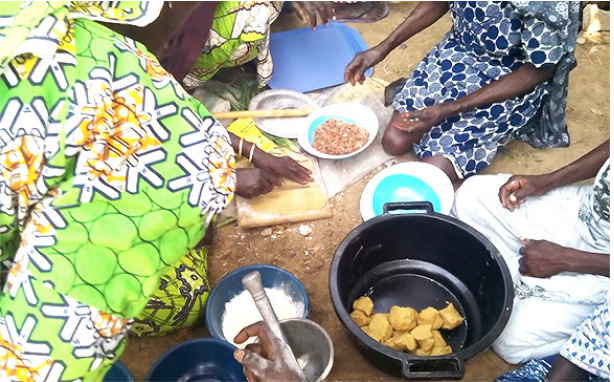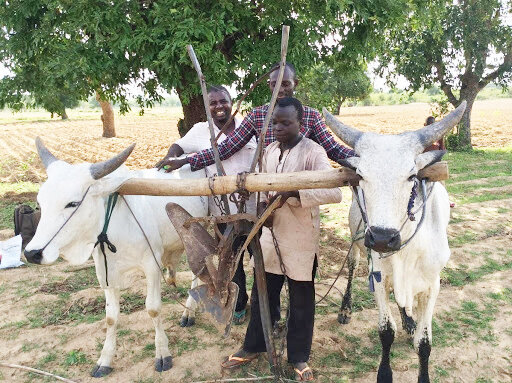Nigeria is one of the countries with the highest risk of Vitamin A Deficiency (VAD). It is also particularly challenging to reach the most vulnerable children in rural, hard to reach communities as these communities are often missed during Vitamin A supplementation programs. As such, only two in five children receive adequate levels of supplementation, leaving a higher percentage of children at risk of Vitamin A Deficiency (VAD). National surveys show that Kano state has one of the lowest vitamin A uptake levels.
eHealth Africa received funding from the German Cooperation (GIZ) to implement a pilot project with the goal of supplementing vitamin A uptake and diversifying the diets of GIZ farmers in Kano state through the introduction of Orange- Fleshed Sweet Potato (OFSP). OFSP is a biofortified crop that is rich in beta-carotene, the precursor of Vitamin A. The recommended daily allowance (RDA) of Vitamin A in children and non-lactating mothers can be met by consuming a root of OFSP as small as 125 grams1. In collaboration with the Kano State Agricultural and Rural Management Authority (KNARDA), Women Farmers Advanced Network (WOFAN) and with support from International Potato Centre (CIP), eHA trained over 900 CARI farmers to produce, prepare and process OFSP roots and vines. The beneficiaries were mostly women from 5 Local Government Areas: Bichi, Bunkure, Garum Mallam, Dawakin Kudu, and Garko in Kano State.
Hajiya Rabi Garba, of Garko LGA is one of over 500 women farmers who were trained on Orange Fleshed Sweet Potato (OFSP) production and utilization in Kano state. Before the project, OFSP was unknown to her and to most people in Kano state. The fact that such a variety of sweet potato existed came to her as a surprise.
“When I saw the OFSP, I was very surprised. I didn’t know
that sweet potato could be orange. eHealth Africa taught us about the benefits of OFSP and how to grow and cook it in various ways.”
Using an integrated agriculture and nutrition approach, eHA built the capacity of Rabi and other women farmers to utilize OFSP for the production of weaning baby foods and household meals using locally available ingredients. She was also trained to produce commercial products from OFSP which she could sell to generate additional income.
OFSP vegetable soup, chin-chin and cake
“I learnt how to make bread, snacks, chin-chin, cakes, juice and kunu from OFSP and now, can make more money to support my family. I make about N17,000 (approximately US $47) from 3 bags of roots and the leaves are equally in high demand. It has been a great intervention for me and my fellow women in Garko. We all farm, eat and sell OFSP. We are grateful for this assistance and I hope that it gets to other local government areas and communities too.”
Through the introduction of OFSP to the target LGAs in Kano State, eHealth Africa and GIZ have improved the nutritional status of the farmers, their families and their communities. The women, now empowered with an extra source of income can contribute to the creation of a better quality of life for their families.







